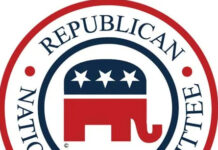The U.S. Tenth Circuit Court of Appeals recently ruled that the University of Colorado Anschutz School of Medicine’s policies of refusing religious exemptions to its COVID-19 shot mandate were “motivated by religious animus” and unconstitutional under the Free Exercise and Establishment Clauses of the First Amendment and the Fourteenth Amendment.
The Appeals Court reversed a lower court decision in its 55-page ruling on behalf of 17 faculty and students who filed a lawsuit because the University refused to accommodate their sincerely held religious beliefs that prevented them from taking the COVID shot.
The University of Colorado Anschutz Medical Campus is the academic health sciences campus in Aurora which houses the University of Colorado’s six health sciences-related schools and colleges. In September 2021, the University enacted and enforced a policy that all students, employees, and other individuals “who currently or may in the future access any CU Anschutz facility or participate in any CU Anschutz program,” or otherwise interact with members of the Anschutz community “regardless of location,” must become “fully vaccinated” for COVID-19.
The University declared that it would only accept requests for religious exemptions from those whose religions taught that all “vaccines” are forbidden. In addition, those seeking exemptions were required to justify their religious beliefs under questioning.
For example, the administration decided that “it is ‘morally acceptable’ for Roman Catholics to take the vaccines against COVID-19,” and that any Roman Catholic objections to the COVID-19 vaccine are “personal beliefs,” not “religious beliefs. In addition, the University refused to approve religious exemptions for Buddhist applicants, members of the Eastern Orthodox Church, Evangelical Christians, non-denominational Protestants, and applicants who did not specify whether they were affiliated with a particular religious organization. However, the policy allowed religious exemptions from Christian Scientists and Jehovah’s Witnesses.
Then after receiving threats of litigation, the administration announced a new COVID-19 shot policy, effective September 24, 2021, which stated that “a religious accommodation may be granted based on an employee’s religious beliefs,” but “will not be granted if the accommodation would unduly burden the health and safety of other individuals, patients, or the campus community.” In addition, a medical accommodation will not be granted if the accommodation poses an undue hardship or the accommodation poses a direct threat to the health or safety of the Individual or others.”
In its ruling the Court wrote, “A government employer may not punish some employees, but not others, for the same activity, due only to differences in the employees’ religious beliefs. Likewise, the government may not test the sincerity of an employee’s religious beliefs by judging whether his or her beliefs are doctrinally coherent or legitimate in the eyes of the government. Nor may a government employer discriminate against religion by implementing policies that exempt employees for secular reasons more readily than religious ones. All such discrimination violates the Free Exercise and Establishment Clauses of the First Amendment and the corresponding rights incorporated against the states by the Fourteenth Amendment. And when there is no plausible explanation for religious discrimination other than animus, it is subject to strict scrutiny, regardless of whether the government employer admits that its actions were motivated by hostility to certain religions.”
The Court also wrote, “The Administration has not even attempted to explain why its interest is served by granting exemptions to practitioners of some religions, but not others. No one contends that Christian Scientists are any less likely to contract or to spread COVID-19 than Buddhists or Roman Catholics or Orthodox Christians. To paraphrase a prior opinion of this Court: the Administration’s policy does not stop exemptions for religious beliefs; it stops only exemptions for religious beliefs the Administration deems inconsistent.”
The plaintiffs were represented by the Thomas More Society and Telios Law.
Liberty Counsel Founder and Chairman Mat Staver said, “It is unlawful to disregard federal law and force people to choose between their religious convictions and their livelihoods or education over an experimental injection. These school policies were clearly motivated by ‘religious animus’ and violate our most cherished freedom under the First Amendment. All University of Colorado Anschutz Medical students and faculty have the legal right to receive reasonable accommodation.”

















